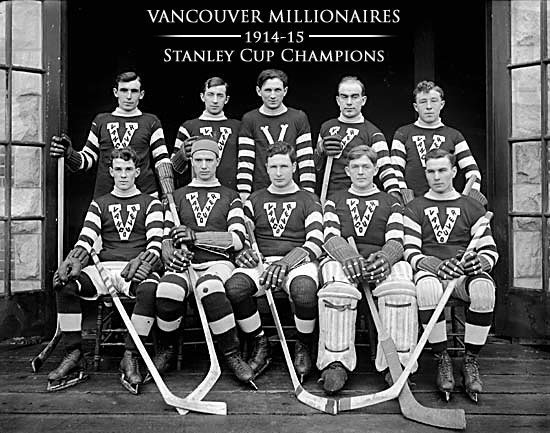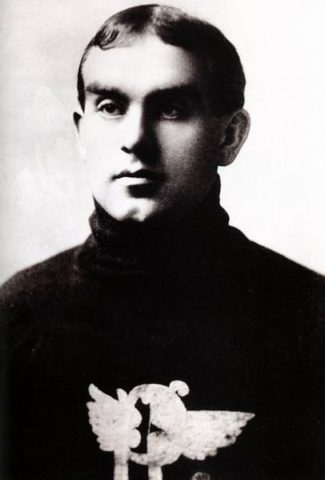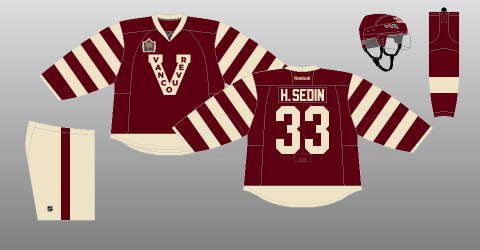Contrary to popular belief, the city of Vancouver does have a Stanley Cup. While the Vancouver Canucks have never hoisted Lord Stanley’s mug (and people were VERY upset at that fact), the other Vancouver franchise, the Pacific Coast Hockey Association’s Vancouver Millionaires, won the greatest trophy in sports in 1914-15.
Started From the Top
The Pacific Coast Hockey Association was founded by brothers Lester and Frank Patrick in 1911 and consisted of three teams, all based in British Columbia; the Vancouver Millionaires, the Victoria Senators (later known as the Cougars) and the New Westminster Royals.

While Lester took charge of the Victoria Senators, Frank became the sole steward of the Millionaires, himself a general manager, coach, and player. Through Frank Patrick’s savvy dealing, the Millionaires were able to acquire feared NHA forward Fred “Cyclone” Taylor, who led them to two Stanley Cup Finals and scored 263 points in 131 games over ten seasons in Vancouver.
The Millionaires dominated the PCHA in its early years, finishing last (in a three-team league) only twice in their first five seasons. They won their first PCHA title in 1914-15 and earned the right to play the National Hockey Association’s Ottawa Senators for the Stanley Cup.
Earning Their Riches
The Millionaires finished the 1914-15 season as PCHA champions with 13 wins and 4 losses. Cyclone Taylor led the team in scoring, potting 23 goals and adding 22 assists for 45 points. Frank Nighbor led the team in goals with 33. Facing the defending Stanley Cup champion Ottawa Senators in the Finals, the Millionaires’ challenge for the Cup was never taken seriously, as the Senators even decided not to take the Cup to Vancouver, convinced they were going to win easily.

Not only did the Senators not win the Stanley Cup, but the series can also be considered the complete opposite of what they were expecting. The Millionaires came flying out of the gate and never looked back, winning the series in three straight games. Vancouver handed the Senators some of the most lopsided losses in Stanley Cup Final history — 6-2 in Game 1, 8-3 in Game 2, and an utterly embarrassing 12-3 drubbing in Game 3. Cyclone Taylor once again led the Millionaires in Stanley Cup scoring, finishing with six goals; teammate Barney Stanley finished second, potting five.
The PCHA’s Only Dynasty
Although they were never able to hoist the Stanley Cup again, the Millionaires dominated the PCHA for the next nine seasons, reaching the Cup Final three times. During that stretch, they finished as PCHA champions twice, before ultimately losing the Cup to the National Hockey League’s Toronto Arenas in 1918, to the Ottawa Senators in 1921, and the Toronto St. Patricks (later the Toronto Maple Leafs) in 1923.

The PCHA itself ceased operations after the 1923-24 season, and the Millionaires played a further two seasons in the Western Canada Hockey League (WCHL). Two seasons later, the WCHL folded as well, and the Millionaires were no more.
The Millionaires Tribute
After nearly 100 years, the Vancouver Millionaires received some attention again when the Vancouver Canucks played the Ottawa Senators in the 2013 NHL Heritage Classic. The Canucks’ jerseys were heavily inspired by the Millionaires, using the cream and maroon colour scheme and the same logo. The Canucks even employed the Millionaires throwback jersey as an alternate for a few games, wearing it as part of their ‘retro nights.’
The city of Vancouver boasts a proud hockey history through both the Canucks and the Millionaires. Perhaps a Cup for the Canucks is looming in the future, given the history upon which the team can draw for inspiration. Bringing a Stanley Cup back after over 100 years sounds pretty good, doesn’t it?